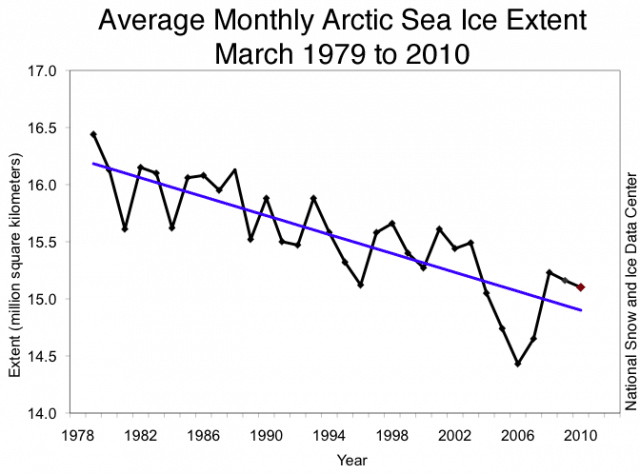The extent of Arctic sea ice peaked on March 31, 2010, the latest date for the maximum Arctic sea ice extent since the start of the satellite record in 1979, according to the National Snow and Ice Data Center in Boulder, Co. The ice also reached an extent that was 670,000 square kilometers (260,000 square miles) above the record low for the month, which occurred in March 2006.
From these two factoids, you may expect a round of stories in the DenierSphere trumpeting a return to global cooling – an end to the worrying decline of Arctic ice that hit a low point in 2006. Just as they have done with the unusually warm year in 1998, the campaigners for inaction will grasp onto the historic low as a new starting point for their graph – which will then show an actual increase in ice: hallelujah.
Of course, if you look at the graph to the left, you’ll see the trend. If someone tries to take your attention away from that declining line, ask them to explain why.
Subscribe to our newsletter
Stay up to date with DeSmog news and alerts







